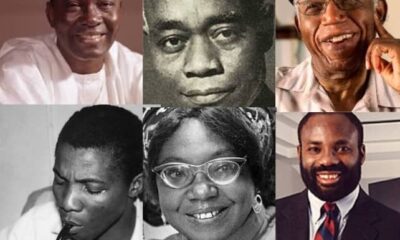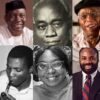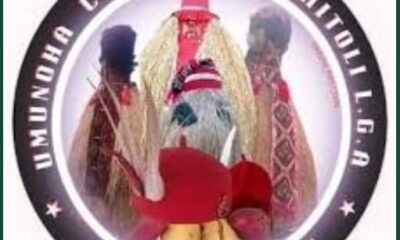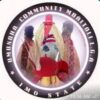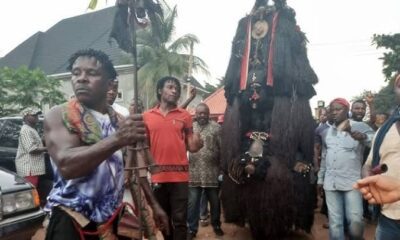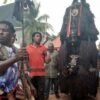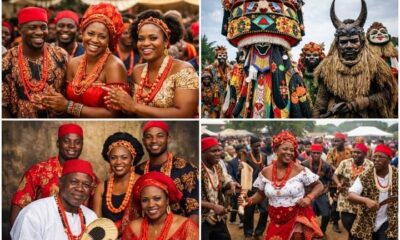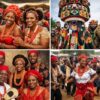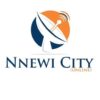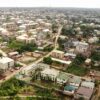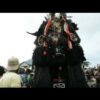African Culture and Traditions
Ofala Festival: A Celebration of Igbo Kingship and Heritage
Ofala Festival is a vibrant annual celebration of Igbo kingship, culture and spiritual renewal. Discover its meaning, history, rituals and modern relevance.
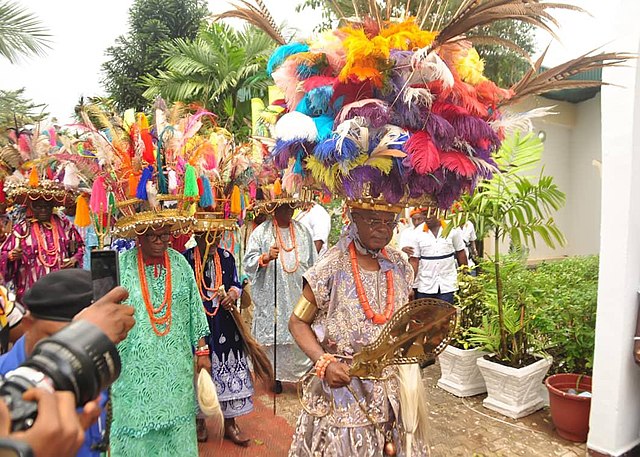
Ofala Obi of Onitsha
Ofala Festival is one of the most vibrant and significant cultural celebrations in southeastern Nigeria that draws thousands of people from near and far to witness a majestic display of Igbo royalty and heritage.
Held annually by Igbo kings known as Obis, Ezes or Igwes, the festival marks the renewal of their authority and the unity of their communities. Beyond its colourful pageantry of masquerades, music and dance, Ofala Festival is deeply rooted in spiritual tradition, ancestral reverence and the preservation of Igbo culture.
In this article, we explore the meaning, history, rituals, cultural significance and modern relevance of Ofala Festival, uncovering why it remains a cherished celebration of Igbo kingship and identity today.
Meaning of Ofala Festival
The term “Ofala” comes from two Igbo words: ọfọ, meaning authority, and ala, meaning land. Together, they convey the idea of the “authority of the land”, signifying the king’s moral and spiritual power over his domain.
In Igbo tradition, Ofala Festival is more than a royal celebration. It is a rite of renewal. It marks the end of a period when the king retreats into seclusion to undergo spiritual purification and reflection for the good of the community. At the end of this retreat, he re-emerges publicly to bless his people and reaffirm his reign.
According to scholarly research, Ofala is not just a yearly celebration, but a commemorative anniversary of the king’s accession to the throne. The festival symbolically underscores the belief that a king’s authority is both perpetual and undying. Even after death, his legacy lives on through what is sometimes called his “last Ofala.”
Moreover, in specific communities like Onitsha, Ofala is linked to the story of how yams were first introduced. According to tradition, the monarch’s diviners tasted the new yam first to ensure it was safe for the people as a symbolic act of leadership, protection and renewal.
History of Ofala Festival
Ofala Festival dates back several centuries and has evolved into a profound symbol of Igbo kingship and tradition. While there is no single written origin, its story is woven from oral history, royal tradition and cultural exchange.
Origins
According to oral traditions recorded in Onitsha and other Igbo communities, Ofala Festival can be traced back to around the 16th century when the people of Onitsha migrated from the Benin Kingdom to the eastern banks of the Niger River. As some historians note, these early settlers may have brought with them elements of Benin’s royal rituals similar in nature to the Igue Festival of the Benin Kingdom.
The Journal of Education, Humanities, Management & Social Sciences (JEHMSS) also supports this view, arguing that Ofala is a recurring annual commemorative celebration of the institution of kingship in Igbo land. Moreover, the same source explains that when a king dies, his funeral may also be commemorated as a “last Ofala,” underlining the belief that a king’s authority is perpetual.
Historical Development and Evolution
Over time, Ofala Festival grew in cultural and social significance. Initially, it was mostly a royal rite, a period of spiritual retreat followed by public emergence. In Onitsha, tradition holds that the king (Obi) would go into seclusion for spiritual purification, before emerging at the festival to bless his people.
As the tradition evolved, different towns adopted the festival in their own ways. For instance, in Nnewi, oral histories suggest that the Ofala Festival dates to as early as the 1850s. Originally, there were two types of Ofala – one held the day after a new ruler’s coronation, and the other, “the last Ofala” held after the death of a ruler. Over time, due to social changes and external influences, many communities have shifted to holding Ofala annually.
In Ogbunike Kingdom, also in Anambra State, Ofala Festival has been recorded in more recent decades. In 2016, the Ogbunike Ofala marked not only community celebration but also a triple celebration, combining the ruler’s birthday and years on the throne with the annual festival.
Cultural Continuity and Modern Recognition
Throughout its history, Ofala Festival has remained a powerful vehicle for royal legitimacy and community identity. As Igbo kingdoms developed, the festival became more than a royal ritual. It became a public ceremony that includes homage-paying, title conferment and cultural performances.
In modern times, traditions have adapted but the core of Ofala remains rooted in its historical purpose. For example, in Onitsha, Ofala Festival is still held in October, often aligning with other community celebrations. It continues to be an occasion for the king to reflect, connect with his people, and reaffirm his role, just as their ancestors did centuries ago.
Key Features of Ofala Festival

Ofala Igwe Nnewi
Ofala Festival is rich in traditional ceremony, pageantry and modern cultural expression. Its most defining features include:
Spiritual Retreat
Before the public celebration, the monarch goes into seclusion, i.e. a deeply spiritual retreat. During this period, he is believed to commune with spiritual forces, purify himself and negotiate the future fortunes of his kingdom.
All‑Night Ufie Drumming and Cultural Activities
Ofala festival traditionally begins with an all-night Ufie drumming session. The Ufie is a large royal gong, accompanied by dancing, incantations and cultural performances. This musical vigil sets a spiritual and celebratory mood for the days ahead.
Royal Emergence (Iru Ofala)
The first day called Iru Ofala is primarily for the monarch. He emerges in full regalia, including royal robes and often a ceremonial sword, to parade the palace arena and greet his people. In Onitsha, this emergence is usually announced by a 21-gun salute, symbolizing honour and celebration.
During his appearance, the king often dances to traditional drums, making several rounds of the arena. Between his rounds, subjects, i.e. chiefs, age groups, and guests pay tribute and express their respects.
Homage by Chiefs and Traditional Leaders
Red-cap chiefs arrive in procession, often to the sound of royal music, and pay homage to the king in order of their seniority. The homage is formal and structured. After the king’s public appearance, the chiefs enter, kneel and offer greetings.
Ofala festival is also a time to confer chieftaincy titles on individuals who have served the community.
Public Day (Azu Ofala)
The second day which is Azu Ofala is when the wider community participates meaningfully. Age-grade societies, cultural troupes and citizens parade in colourful traditional wear. Each age-grade or group dances past the throne room or central arena, paying homage to the king in display of loyalty and cultural pride.
This day features large-scale performances such as music, dance and masquerades, giving voice to the heritage of the people.
Masquerades and Cultural Performance
Masquerades, including important ones in some areas are central to the spectacle, offering visual drama, cultural symbolism and ancestral linkages.
Traditional dances, drumming and parades give Ofala festival its vibrancy and demonstrate Igbo social and artistic structures.
Modern Extensions
Ofala Festival now includes lecture series such as the annual Obi Achebe Lecture as part of Ofala Obi of Onitsha which brings intellectual and modern discourse into the tradition.
There are community-focused events too – health outreach programmes, thanksgiving church services and banquets. Ofala festival in Onitsha has grown into a tourism and cultural event, with support from the Nigerian Tourism Development Corporation.
These features together make Ofala Festival a deeply symbolic and socially rich event that blends tradition, spirituality and modern community life.
Towns and Communities Where Ofala Is Most Celebrated
Ofala Festival is not exclusive to a single Igbo town. It is celebrated across several notable communities in southeastern Nigeria, each adding its own flavour and tradition to the festival. However, there are some prominent towns where Ofala holds deep cultural significance, and they include:
Onitsha (Anambra State)
Ofala Festival of Onitsha is perhaps the most recognized. It is held annually, usually in October. According to the National Institute for Cultural Orientation (NICO), the festival is a time when the Obi appears publicly in regal attire, offering blessings and reinforcing his bond with the people.
Ofala Obi Onitsha has modernized in recent years. The 2025 edition, for example, included not just traditional dances and homage, but also a lecture series, youth carnival and health outreach.
Stakeholders are working toward international recognition for Ofala Obi Onitsha. The 2025 festival aimed for global visibility, backed by the Nigerian Tourism Development Commission (NTDC).
Nnewi (Anambra State)
Known as Ofala Igwe Nnewi, this celebration is held in honour of the Igwe of Nnewi. Historically, the festival used to be held twice, once after the coronation of a new ruler, and once more after his death (the “last Ofala”). However, in modern times, it has become an annual event usually held in December.
During Ofala Igwe Nnewi, the Igwe receives homage from chiefs, dignitaries and visitors, and chieftaincy titles are conferred to honour service and leadership. The festival also attracts attention through cultural pageantry: The Easterner documented a grand celebration featuring traditional costumes and public performances.
Ogbunike (Anambra State)
Ogbunike Kingdom marks its own Ofala Festival which is not only a royal celebration but also a significant community event. In 2016, Ogbunike’s Ofala combined several occasions – the king’s annual Ofala, his birthday and his years on the throne, creating a triple celebration.
As in other communities, Ofala festival in Ogbunike is a time to reward citizens. Chieftaincy titles are awarded to those who have contributed meaningfully to the development of Ogbunike.
Other Communities
Besides Onitsha, Nnewi and Ogbunike, other towns also celebrate Ofala. According to multiple sources, these include Umueri, Umuoji, Aguleri and Ukpo. In Umunnachi in Dunukofia LGA, Anambra, Ofala celebrations are part of the community’s traditional calendar.
These communities reflect the geographical and cultural spread of Ofala Festival in Igboland. While the core ritual of the king’s emergence, homage and communal celebration is constant, each town brings its own traditions, history and local practices to the festival.
Spiritual and Ritual Significance
Governor Soludo paying homage to Igwe Nnewi at his 59th Ofala Festival
Ofala Festival is deeply rooted in spiritual meaning and serves as more than a cultural spectacle. It is a sacred ceremony that reaffirms the link between the monarch, the ancestors and the living community.
Prior to his public appearance, the king traditionally enters a period of seclusion. During this retreat, the monarch isolates himself from the public to pray, meditate and spiritually prepare. This time is believed to be used to negotiate the fortunes of the kingdom with the ancestors and the spirit world.
The seclusion is essential in that it is a sacred cleansing period that protects the king’s spiritual integrity before he returns to public view to lead.
One of the key spiritual dimensions of Ofala festival is that the king, during his retreat, communes with his ancestors to secure blessings, protection and prosperity for his people. In traditional belief, his emergence from seclusion represents a reaffirmation of his authority as well as a renewal of his bond with the spiritual realm. This communion underscores the king’s role as an intermediary, not just a political leader but a spiritual guardian of his community.
Ofala festival is often described as a rite of renewal for the kingdom. After the Obi’s period of spiritual retreat, his public reappearance brings a sense of fresh start, spiritual cleansing and renewed hope for the people.
According to official source, his emergence from seclusion signals that he has successfully negotiated the fortunes of his kingdom, implying that the spiritual work done during the retreat has positive, real-world implications for his people.
In Onitsha tradition, for instance, Ofala also reenacts a significant ancestral moment, that is, the discovery that yam, a vital staple was safe to be eaten. Historically, the king’s diviners would taste the new yam first before it was generally consumed, symbolizing his role as protector, mediator and provider.
This ritual links the spiritual act of the king’s emergence to physical sustenance, reminding people of their interdependence. Spiritual renewal and earthly provision are deeply connected in Igbo worldviews.
The concept of ofo, a sacred staff or symbol of moral and spiritual authority is central to Ofala festival. In Igbo cosmology, ofo represents lineage, truth and ancestral power.
During Ofala festival, the king’s authority is spiritually reaffirmed. His role is not just political but also metaphysical as he carries the ofo, or symbolizes it as a bearer of ancestral legitimacy.
This affirmation of ofo during Ofala ties the king’s temporal power to a deeper, enduring spiritual foundation.
By emerging from his spiritual reclusion and blessing his people, the king invokes protection and well‑being for his kingdom. The ritual establishes a yearly spiritual checkpoint. The kingdom’s moral compass is reviewed, and communal harmony is reinforced through the king’s renewed mandate.
The public nature of the king’s re-emergence is not only political but deeply spiritual as it signals to the people that their leader is spiritually grounded and empowered to guide them for another cycle.
Cultural and Social Importance
Ofala Festival is a powerful vehicle for preserving Igbo culture, strengthening community bonds and contributing to social and economic life. Some of the key cultural and social roles it plays include:
Preservation of Igbo Heritage and Identity
Ofala Festival is a living archive of Igbo traditions. It serves as a celebration of heritage and communal identity with royal dances, tributes and parades that reflect centuries of tradition. The festival showcases traditional arts and craftsmanship such as beadwork, weaving, carving and pottery all come alive during Ofala festival, helping to preserve and promote Igbo artistic expression.
Rising to the need for cultural renaissance, Ofala festival helps to educate younger Igbo generations on their heritage.
Community Unity and Social Cohesion
The festival brings together people from all walks of life – red-cap chiefs, age-grade societies, women’s groups, youth and diaspora indigenes. This reinforces social ties and reinforces shared identity.
Ofala represents a unifying force for the people. Age-grade and traditional groups come together in tribute, and families, including those living abroad return home for the festival. The Obi of Onitsha himself describes Ofala as a homecoming opportunity, especially for indigenes in the diaspora.
Public Recognition and Honuor
During Ofala festival, chieftaincy titles are conferred. In Nnewi, the festival provides an occasion to honour citizens for their service, reinforcing loyalty and encouraging civic contribution. This tradition of recognition helps to sustain the traditional leadership structure and encourages community members to contribute to the society, both culturally and socially.
Economic and Cultural Tourism Impact
Ofala Festival draws thousands of visitors, including tourists, dignitaries and diaspora Igbo. This influx significantly boosts local business, from hospitality to crafts. Hotels, transporters, caterers and artisans benefit directly from the festival’s economic activity.
On a broader level, Ofala festival now functions as a heritage tourism event in Onitsha, with endorsement from tourism bodies (NTDC).
Intergenerational Transmission of Culture
For the youth, Ofala festival is a way to connect with their roots. The Orivvio guide to the 2025 Ofala festival in Onitsha highlights how age-grade societies wear coordinated traditional costumes and perform dance routines, inviting younger generations into the heart of the tradition.
Through the festival, history is taught and lived. Stories of the monarchy, the meaning of traditional regalia and the symbolic importance of rituals are passed from elders to younger people. This continuity ensures the survival of Igbo identity.
Platform for Civic Discourse and Reflection
In Onitsha, during Ofala festival, the Obi often delivers public addresses that go beyond the usual ritual. He reflects on social issues, offers guidance and calls for unity and perseverance. In 2025, for instance, the festival’s theme – “Njiko na Ntachi” (Unity and Perseverance) was chosen to highlight community solidarity in challenging times.
In addition, the festival provides a forum for stock-taking, reflection and goal-setting for the community, making it a meaningful moment for civic leadership.
Cultural Pride and Global Visibility
Ofala Festival has grown to become not just a local tradition but an internationally recognized cultural brand. Under the leadership of the monarch, the festival has been elevated into a global event with dignitaries, media and cultural enthusiasts from beyond Nigeria. This visibility helps to promote Igbo culture globally, strengthen cultural pride among the Igbo diaspora, and draw attention to Igbo traditions as a source of identity and heritage.
In Conclusion …
Ofala Festival remains one of the most powerful symbols of Igbo identity, kingship and cultural continuity. Rooted in centuries-old customs, the festival blends spirituality, history and community life in a way few cultural events can. Its rituals, from the king’s sacred retreat to his colourful public emergence highlight the spiritual bond between the monarch, the ancestors and the people. Its ceremonies, performances and displays of regalia preserve Igbo traditions that might otherwise fade with time.
Across towns like Onitsha, Nnewi, Ogbunike, Umueri, Umuoji and others, Ofala Festival serves as an annual reminder of the importance of unity, cultural pride and leadership grounded in moral authority. It is also a major social event that draws families home, strengthens community ties, promotes cultural tourism, and provides a platform for reflection, recognition and renewal.
In today’s fast-changing world, Ofala Festival has shown remarkable resilience. It maintains its traditional essence while embracing modern elements that give it national and international visibility. This balance between preservation and innovation is part of what makes Ofala Festival so enduring, and why it continues to stand out as a central celebration of Igbo kingship and heritage.
Ultimately, Ofala is a living story of a people, their history, their spirituality, their leadership system and their collective pride. It continues to reaffirm who the Igbo are, where they come from, and the values that bind their communities together.
Today, Ofala continues to evolve, embracing art, education, tourism and modern themes without losing its ceremonial heart. It stands as a living symbol of Igbo kingship and heritage that celebrates resilience, tradition and communal values.
References
- https://en.wikipedia.org/wiki/Ofala_Festival
- https://www.primebusiness.africa/ofala-festival-onitshas-celebration-of-tradition-renewal-unity/
- https://ofala.org/
- https://nico.gov.ng/onitsha-ofala-festival/
- https://independent.ng/obi-of-onitsha-goes-into-seclusion-as-2025-ofala-festival-begins/
- https://www.cambridgenigeriapub.com/wp-content/uploads/2020/08/SJMSE_Vol13_No5_March_2019.pdf
- https://nnewi.info/ofala-festival/
- https://guardian.ng/art/with-njiko-na-ntachi-onitsha-set-for-2025-ofala-festival/
- https://www.nigerianjournalsonline.com/index.php/JEHMSS/article/viewFile/3896/3794
- https://www.umuigbo.com/the-ofala-festival/igbo-culture
- https://nnewicity.com/ofala-2025-celebrating-an-age-long-onitsha-heritage/
- https://nnewicity.com/igwe-nnewi-celebrates-1st-day-ofala-2024/


